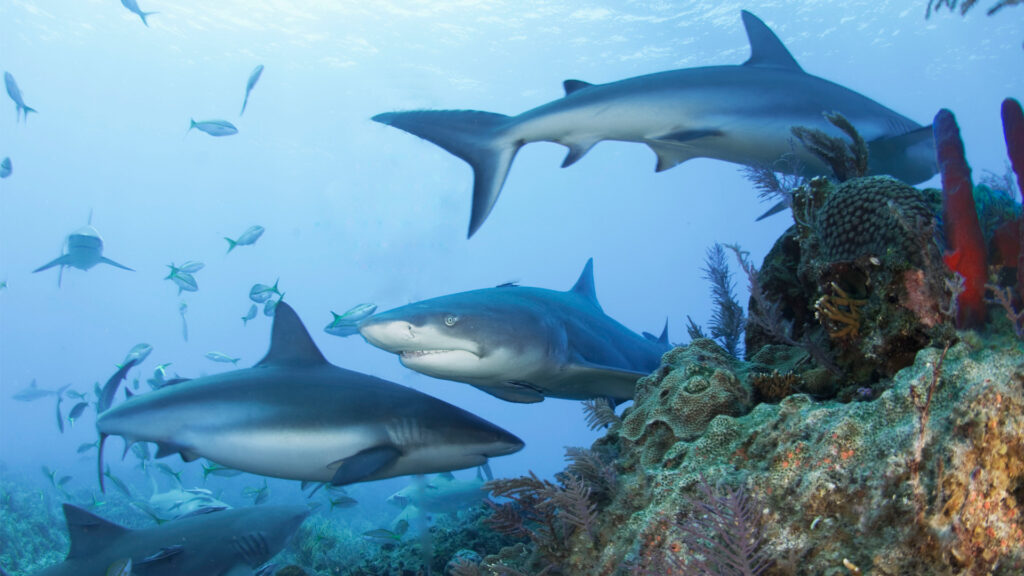By JoAnn Adkins, Florida International University
Overfishing is driving reef sharks toward extinction, according to a new study published this month in Science.
The five main shark species that live on coral reefs — grey reef, blacktip reef, whitetip reef, nurse and Caribbean reef sharks — have declined globally by an average of 63%, according to the scientists of Global FinPrint, a five-year international study supported by the Paul G. Allen Family Foundation and co-led by researchers at Florida International University (FIU).
“These are some of the best estimates of population decline of widespread shark species because of the very large number of reefs and countries sampled,” according to Colin Simpfendorfer, lead author of the study and adjunct professor of Marine and Aquaculture Science at James Cook University in Australia. “This tells us the problem for sharks on coral reefs is far worse and more widespread than anyone thought.”

Results from this latest research, which includes 22,000 hours of video footage from baited underwater video stations across 391 reefs in 67 nations and territories, indicates widespread overfishing is the main culprit driving reef sharks toward extinction and changing how coral reefs function.
“People need healthy coral reefs,” said Mike Heithaus, co-author of the study and executive dean of FIU’s College of Arts, Sciences & Education. “We are seeing that when sharks disappear, that causes other changes in these ecosystems. Keeping shark populations healthy, or rebuilding them, is important for maintaining their roles for healthy reefs.”
The scientists observed many reefs have become stripped of both shark and ray species or stripped of just shark species, leaving the ecosystem dominated by rays. The exception is Marine Protected Areas (MPAs), a defined region designated and managed for the long-term conservation of marine resources.
“While overfishing and poor governance is associated with the absence of these species, they are still common in MPAs and places where shark fishing was banned or highly regulated,” said Demian Chapman, lead scientist of Global FinPrint and director of the Sharks and Rays Conservation Program at Mote Marine Laboratory. “Reef sharks can be important for human livelihoods through dive tourism and if fished carefully. An investment in reef shark conservation can therefore be good for people, too.”

Early results from this study were previously used to update the status of four of these species to more threatened categories on the International Union for the Conservation of Natures (IUCN) Red List. They were also presented during the most recent Conference of the Parties of the Convention on the International Trade in Endangered Species of Wild Fauna and Flora (CITES), helping world governments to make the groundbreaking decision to better regulate trade in these and more than 50 additional species of sharks.
“This means no trade should come from nations where the take of the species will threaten its survival,” Simpfendorfer said. “This study can be used to help identify those nations where such catches would be detrimental. We need to act now to stop widespread extinction of shark species in many parts of the world.”
More than 150 researchers from more than 120 institutions across the world contributed to the research.
This piece was originally published at https://news.fiu.edu/2023/reef-sharks-are-at-much-higher-risk-of-extinction-than-previously-thought
Sign up for The Invading Sea newsletter by visiting here.



